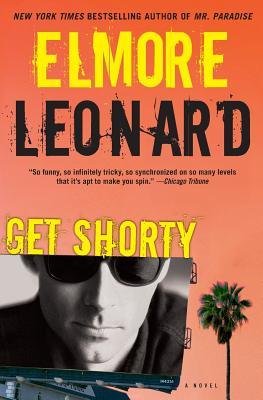Writing the last line

It’s always a bit scary getting to the end of your first draft and writing the last line. I was there again the other day and I have to admit the final sentence came as a surprise. For one thing, the novel ended with dialogue and the last word went to a minor character – although one who has had a fair amount to say throughout my Fish Pescado/Vicki Kahn series.
Originally I’d had in mind some atmospheric final image which would linger in the reader’s mind long after they’d closed the book. But no such luck. Instead, out popped something completely different as a kind of commentary on the action. Of course, it may not remain during the rewrite but for the moment I’m sticking with it.
Great last lines
With the last line it’s always a toss up: do you go with the Scott Fitzgerald poetic option or the Elmore Leonard dash with a splash of humour?
Remember how Fitzgerald ended The Great Gatsby: “So we beat on, boats against the current, borne back ceaselessly into the past.” Haunting stuff.
Or there’s the end of Leonard’s Get Shorty, “Fuckin endings, man, they weren’t as easy as they looked.” And he could be talking about ending a novel. Maybe he was.
I have to admit I also like the ending to Liane Moriarty’s The Husband’s Secret although you need the last four sentences or it doesn’t make sense: “I’m not surprised someone ended up dead. Oh, all right. I guess that’s overstating it. I was a little surprised.” There’s nothing like oddball humour.
And then for one of those evocative endings there’s the last sentence of Joan Didion’s Democracy: “When I read this piece in London I had a sudden sense of Inez and of the office in the camp and of how it feels to fly into that part of the world of the dense greens and translucent blues and the shallows where islands once were, but so far I have not been back.” This is a reference to the imagery that opened the novel so it is a very neat loop.
That “neat loop” type of ending is one of the most effective there is. It’s not predictable but when you think back over the story it seems inevitable. Inevitable is good in an ending. So if you are planning on a surprise ending to your story, make sure that, in retrospect, it is inevitable. It might be something that no one sees coming (which is an advantage) but, when it happens, the reader realises the end couldn’t have been any other way. And if there’s a smile in it, that’s good too.
Get more out of your writing.
Click here for a course on Writing Fiction. Click here for a course on writing a memoir, Writing Reality. If you’re looking for supervision while writing your memoir or novel, join The Writers’ Masterclass. There’s a new class starting in February 2021. You’ll be in good company.